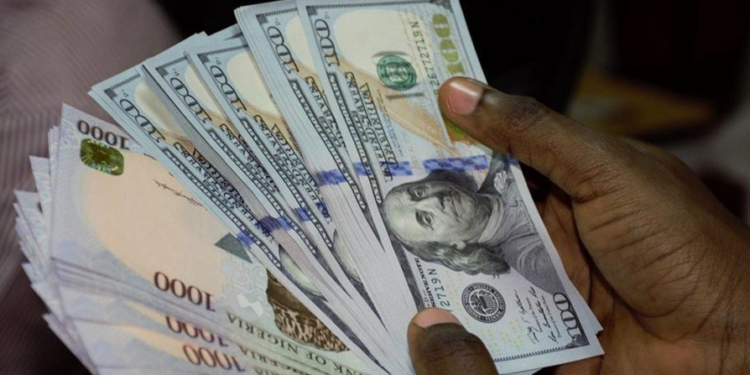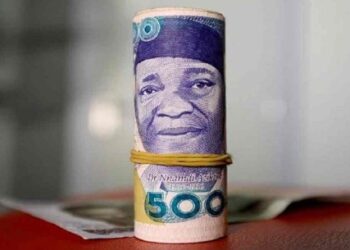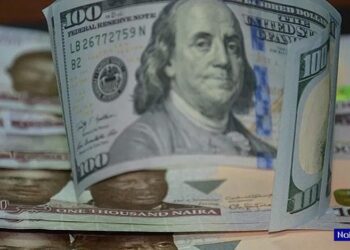The exchange rate between the naira and dollar in the official NAFEM Window has depreciated to N1,533.99/$1 on Thursday, May 16, 2024.
This represents a massive 4.89% drop in one day when compared to the N1459.02/$1 recorded a day earlier.
The exchange rate snapped one week of loss to close stronger on Wednesday. However, it appears that was a blip with the rate falling to the lowest this month.
The trading dynamics on Thursday further underscore the erratic nature of the market. During intra-day trading, the exchange rate peaked at an intra-day high of N1,590/$1, highlighting a temporary surge in dollar sales.
Conversely, the intra-day low dropped to N1,399.20/$1, reflecting periods of heightened buying pressure on the naira.
The sharp movements within a single trading day suggest heightened uncertainty and instability, making it challenging for businesses and investors to plan their financial activities.
FX liquidity slows marginally
This depreciation followed a notable shift in forex turnover. On Wednesday, forex turnover surged by an impressive 124.56% to reach $289.14 million. However, by Thursday, turnover had fallen marginally by 5.63% to $272.86 million. This squeeze in forex liquidity likely contributed to the naira’s sharp decline in value on the official market.
Reduced availability of foreign exchange can lead to increased pressure on the naira as demand outstrips supply. This scenario often results in higher exchange rates, as was evident on Thursday.
What You Should Know
- The depreciation of the naira has broad implications for the Nigerian economy. Import-dependent sectors may face increased costs, leading to higher prices for goods and services, which could in turn exacerbate inflationary pressures. This situation strains consumers’ purchasing power and poses challenges for businesses planning their financial activities.
- In response to the ongoing volatility, the Central Bank of Nigeria (CBN) introduced certain reforms while hunting down speculators.
- In February 2024, the National Security Adviser’s Office, led by Nuhu Ribadu, in collaboration with the CBN, initiated a joint effort to combat forex speculation and tackle the issues affecting the country’s economic stability. The collaboration was set to include coordinated actions with leading law enforcement agencies such as the Nigeria Police Force (NPF), the Economic and Financial Crimes Commission (EFCC), the Nigeria Customs Service (NCS), and the Nigeria Financial Intelligence Unit (NFIU).
- Despite the reforms and other efforts to ensure naira stability, the currency has moved from being one of the best performing currencies to one of the worst performing currencies recently.
- Achieving a stable and predictable exchange rate environment will likely require comprehensive policy measures addressing underlying economic issues.
.

























Economic development and Foreign Exchange stability can only be achieved in Nigeria through improvement and proper management of power sector in the country. The present administration must put in place a good policy that will combat the poor electricity supply in Nigeria.